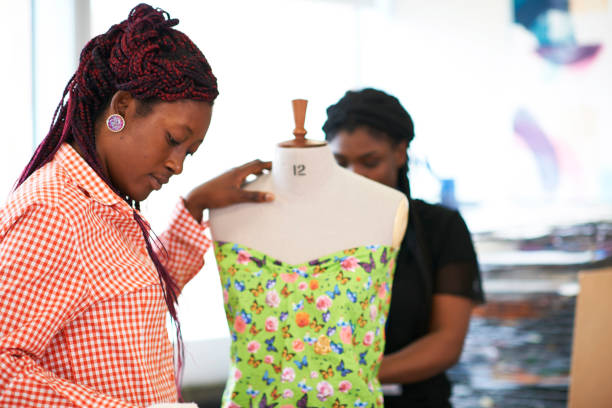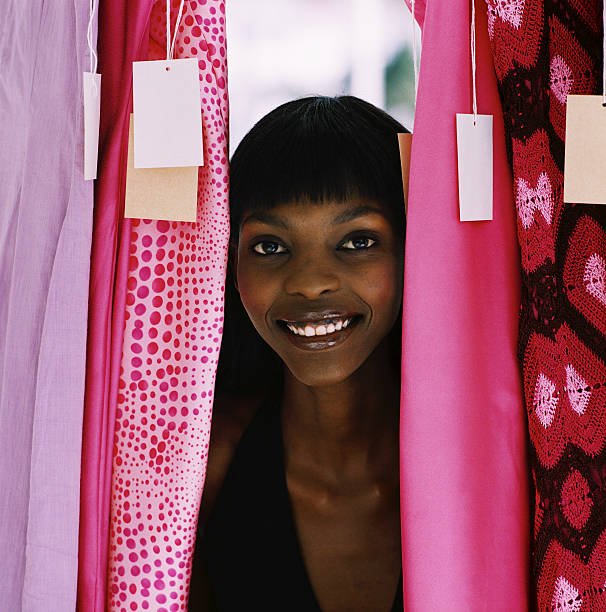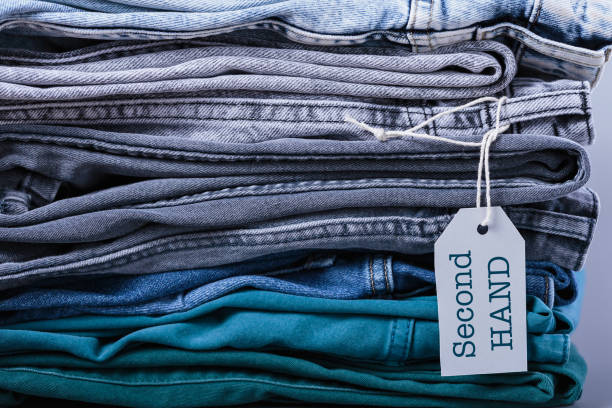As the global fashion industry grapples with the impact of overproduction, climate change, and changing consumer habits, Nigeria is experiencing its own fashion shift. A new wave of fashion consumers particularly Gen Z and millennials are embracing secondhand clothing and rental fashion as both a practical and cultural response to rising costs, sustainability concerns, and a growing appreciation for individuality over brand status.
Rental Fashion: A Pre-loved Nigerian Culture
Thrift Fashion Goes Digital and Desirable

In Nigeria, thrift fashion locally called okrika has long served as an affordable alternative to new retail. But in recent years, it has evolved beyond street markets and roadside stalls into a thriving digital economy. Instagram thrift stores such as Thrift Factory Lagos, Retro Galaxy, and TimiThrift now curate stylish collections, run flash sales, and model vintage looks that rival mainstream fashion editorials.
Unlike the fast fashion industry that produces cookie-cutter trends, thrift culture offers one-of-a-kind pieces. From 90s denim to vintage designer finds, thrifting empowers fashion lovers to experiment with their identity and aesthetic while also making environmentally responsible choices.
Fashion on Loan: The Rise of Rental Fashion

While still emerging, rental fashion is quietly growing in Nigeria’s major cities. A few Lagos-based stylists and wardrobe providers are experimenting with fashion rental services for red carpet events, photo shoots, pre-wedding looks, and exclusive galas. These platforms offer access to premium garments without the pressure of ownership perfect for young professionals and content creators seeking fresh looks without exhausting their wallets.
The rental model also challenges the idea that luxury fashion must be owned to be enjoyed. It allows for creativity without waste and taps into the global trend of circular fashion where items are reused and recirculated instead of discarded.
The Appeal: Affordability, Identity, and Sustainability

The appeal of rental and pre-loved fashion in Nigeria isn’t just financial, it’s deeply cultural. As the economy places more pressure on middle- and lower-income households, young Nigerians are becoming more intentional with how and where they spend.
Sustainability is a growing conversation among fashion enthusiasts. Creators also use their platforms to educate audiences on slow fashion, eco-friendly styling, and reducing textile waste. They make thrifting aspirational, framing it as a conscious, creative act rather than a financial compromise.
Thrifting and renting also speak to a broader desire for identity and self-expression. “I don’t want to wear what everyone else is wearing,” says Tope, a 23-year-old stylist in Ibadan. “Thrifting lets me find pieces that speak to my story.”
Challenges and the Road Ahead

Despite its growing appeal, the rental and thrift fashion industry still faces challenges. Logistics, hygiene concerns, and limited mainstream visibility hinder broader adoption. Many rental platforms are still informal, relying on DM orders and personal networks.
There’s also a lingering stigma around secondhand clothing in some social circles. But as local fashion publications and sustainability advocates continue to champion the movement, perceptions are changing especially among younger, urban audiences.
“Wear it again” is no longer just a frugal mantra; it’s a cultural mindset reshaping Nigerian fashion. From Instagram thrift shops to event-specific wardrobe rentals, young Nigerians are proving that fashion can be affordable, expressive, and environmentally conscious.
In a country where the fashion industry is vibrant but unevenly structured, the pre-loved and rental movement offers a promising path forward one that merges creativity with sustainability and reinvents what it means to be stylish in the 21st century.
